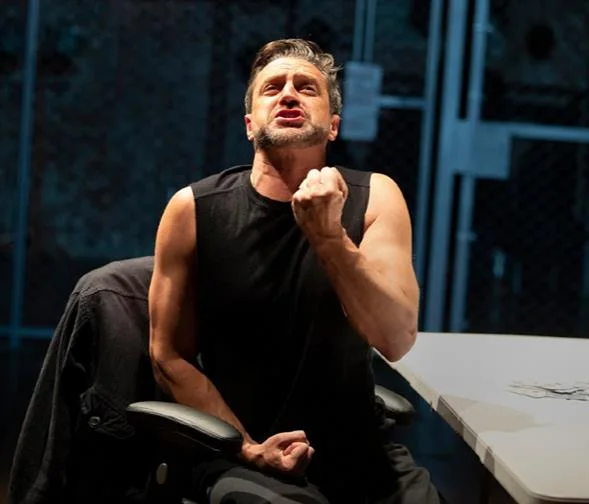Raul Esparza Returns To Stage in Brecht's 'Arturo Ui'
Raul Esparza’s vibrant and diverse characterizations have earned him four Tony nominations in both musicals (Company, Taboo) and dramas (Speed-the-Plow, The Homecoming), while his Off-Broadway work runs the gamut from Jonathan Larson to Shakespeare. A six-year stint playing assistant district attorney Rafael Barba on TV's Law & Order: Special Victims Unit kept him off the boards, but now he's back as the title character in Bertolt Brecht's The Resistible Rise of Arturo Ui at Classic Stage Company. A ruthless '30s Chicago gangster obsessed with controlling the cauliflower trade, Ui is the dramatist's stand-in for Hitler in this satirical allegory about Nazi Germany -- though audiences will inevitably think about contemporary world leaders, too. (It's no coincidence that during the last presidential election, there were three revivals of the play running simultaneously!) Esparza chatted with TDF Stages about reuniting with his Company director John Doyle, how his musical theatre background came in handy with Brecht and why he's definitely not playing Trump.
Frank Rizzo: After the show, I overheard you telling some students about how you first encountered Brecht's plays when you were at NYU's Tisch School of the Arts.
Raúl Esparza: Brecht was one of those theoretical writers we were exposed to, but he didn't really appeal to me. My response at the time was, 'Oh, this is very cold theatre, very clever theatre.' I wanted to be an actor that swept you away, and I thought Brecht was often swallowed by the theory and the concepts that he introduced at the cost of audience engagement. Also, I was coming from a very specific political background, my family being Cuban immigrants. Growing up in Miami, there was nothing worse than communism, so the concepts of socialism and communism to me felt a little Pollyanna. Since then I've drunk the Kool-Aid, and I can't get over how many layers this play works on and how many colors it can encompass.
Rizzo: You haven't been on a New York stage in three years. Why did you decide to return in this role?
Esparza: Because it has something to say that, unfortunately, always seems to resonate in the world. Secondly, it was to work with John again. The play itself was maybe the third consideration.
Rizzo: How did you find your way into the role, given your earlier feelings about Brecht?
Esparza: That's tied up in the way John works. He lets you figure things out in the rehearsal room. He eases our way by doing scenes over and over and over again. It's almost rote repetition. You're not making decisions; you're not trying to achieve a result. You're just saying the lines again and again and again and that leads to a slow discovery of unexpected things. With John it's a process of eliminating, keeping what is most useful. You start really big and then find yourself pulling it in more and more and more until you find the one version that has the echoes of the other stuff you've played with.


